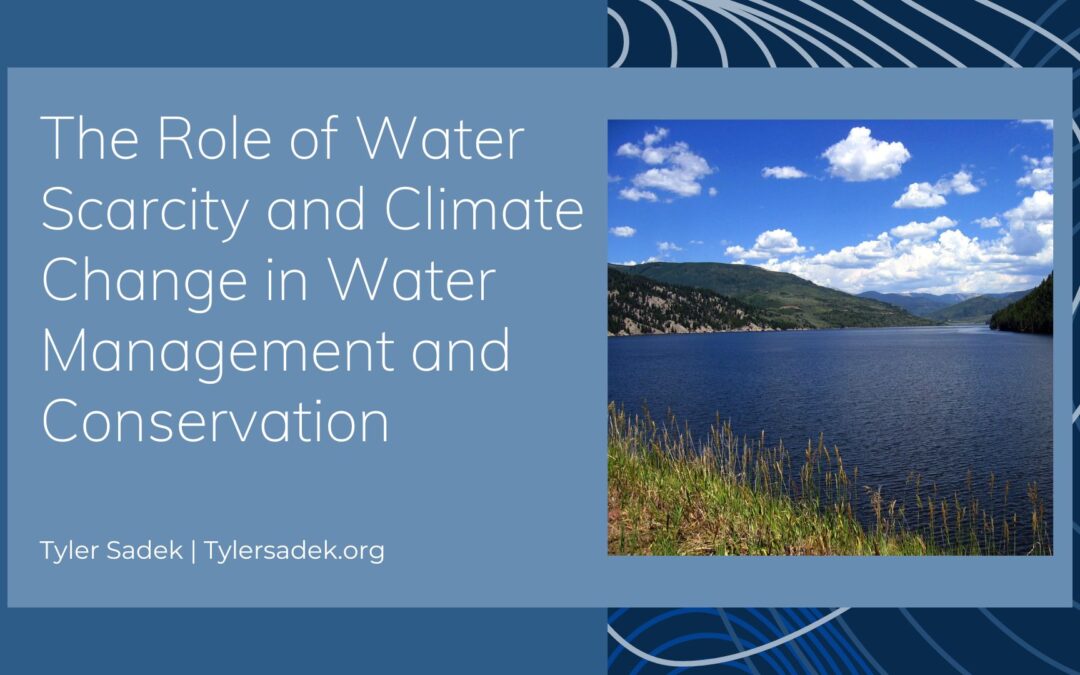Water is an indispensable resource for all life forms on Earth. It is vital in sustaining ecosystems, agriculture, industry, and human well-being. However, the increasing challenges of water scarcity and climate change have raised significant concerns regarding effective water management and conservation. This blog explores the interplay between water scarcity, climate change and their impact on water management strategies and conservation efforts.
Water Scarcity: A Global Challenge
Water scarcity refers to the inadequate availability of freshwater resources to meet a population’s or ecosystem’s demands. It is a global challenge exacerbated by various factors, including population growth, urbanization, and inefficient water use. Climate change acts as a catalyst, exacerbating water scarcity through altered rainfall patterns, increased evaporation rates, and melting glaciers and polar ice caps.
Climate Change and Altered Precipitation Patterns
Climate change is significantly influencing precipitation patterns worldwide. While some regions experience more frequent and intense rainfall, others face prolonged droughts. These extreme weather events pose significant challenges for water management. Flooding can lead to the loss of freshwater through runoff, while droughts reduce water availability for ecosystems, agriculture, and communities. Effective water management strategies must adapt to these changes and incorporate measures to mitigate the impacts of altered precipitation patterns.
Melting Glaciers and Rising Sea Levels
The melting of glaciers and polar ice caps, driven by climate change, profoundly impacts water availability and quality. Glaciers serve as natural water reservoirs, releasing freshwater slowly into rivers and streams during warmer months. As they shrink, the timing and quantity of freshwater release become uncertain, leading to water scarcity in downstream areas that rely on glacial melt for their water supply.
Additionally, rising sea levels contribute to saltwater intrusion into coastal aquifers, rendering them unfit for human consumption and agriculture. These combined effects necessitate the development of innovative water management techniques, such as desalination and groundwater recharge, to address the challenges posed by diminishing freshwater resources.
Water Management Strategies for Sustainable Solutions
Sustainable water management practices and conservation efforts are essential to combat the adverse effects of water scarcity and climate change. Here are some strategies that can contribute to mitigating the impact:
- Water Efficiency and Conservation: Promoting efficient water use in agriculture, industry, and households can significantly reduce water demand. Adopting drip irrigation, water-saving appliances, and rainwater harvesting systems can conserve water resources.
- Infrastructure Development: Investing in water storage infrastructure, such as dams and reservoirs, helps store excess water during heavy rainfall and release it during droughts. This helps regulate water availability and reduces the risk of water scarcity.
- Integrated Water Resource Management: Implementing comprehensive water resource management plans that consider the interconnections between surface water and groundwater, urban and rural areas, and various sectors ensures a holistic approach to water management.
- Water Reuse and Recycling: Treating and reusing wastewater for non-potable purposes, such as irrigation or industrial processes, reduces the strain on freshwater sources. Additionally, promoting the recycling of water in industries minimizes overall water consumption.
- Education and Awareness: Raising awareness about water scarcity, climate change, and the importance of water conservation is crucial for encouraging behavioral changes. Educating communities, policymakers and stakeholders about sustainable water management practices fosters a collective responsibility towards water conservation.
Conclusion
Water scarcity and climate change are intrinsically linked, and their combined impact poses significant challenges for effective water management and conservation. Adapting to altered precipitation patterns and addressing the melting of glaciers and rising sea levels requires innovative strategies and sustainable solutions. By promoting water efficiency, developing robust infrastructure, and implementing integrated water resource management plans, we can strive toward a future where we’ve minimized water scarcity and conserved freshwater resources for future generations.

